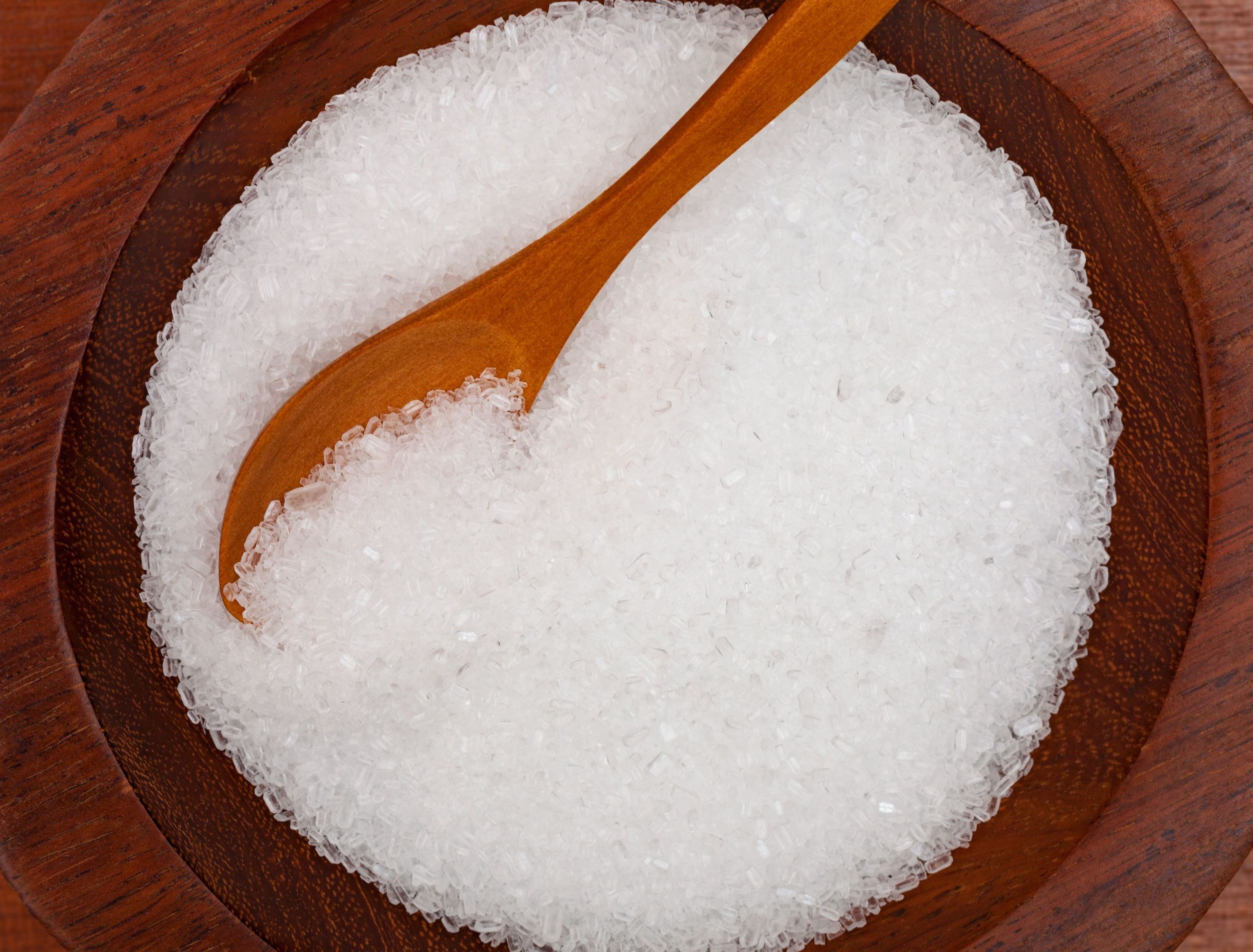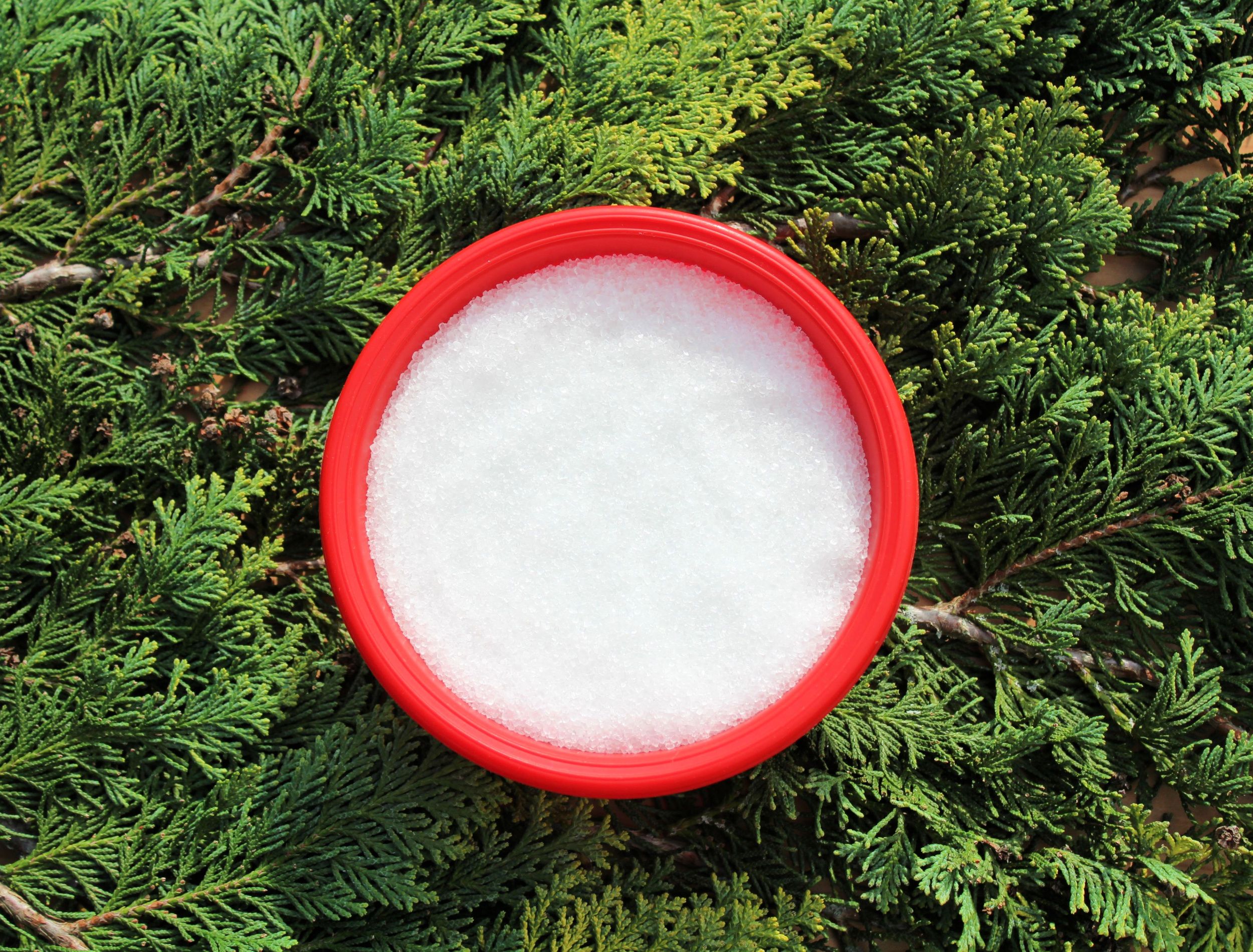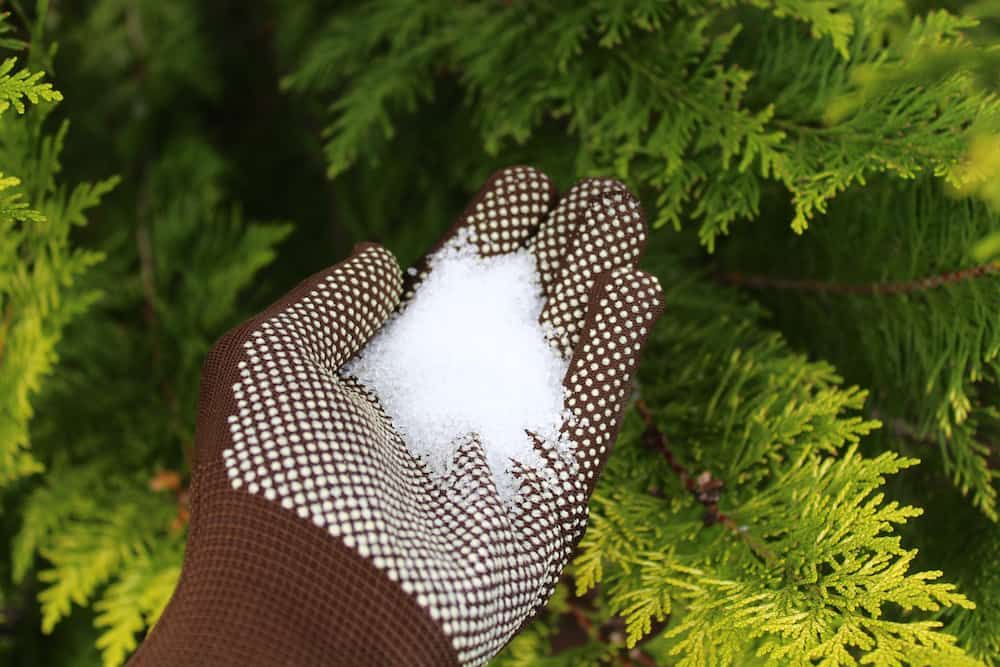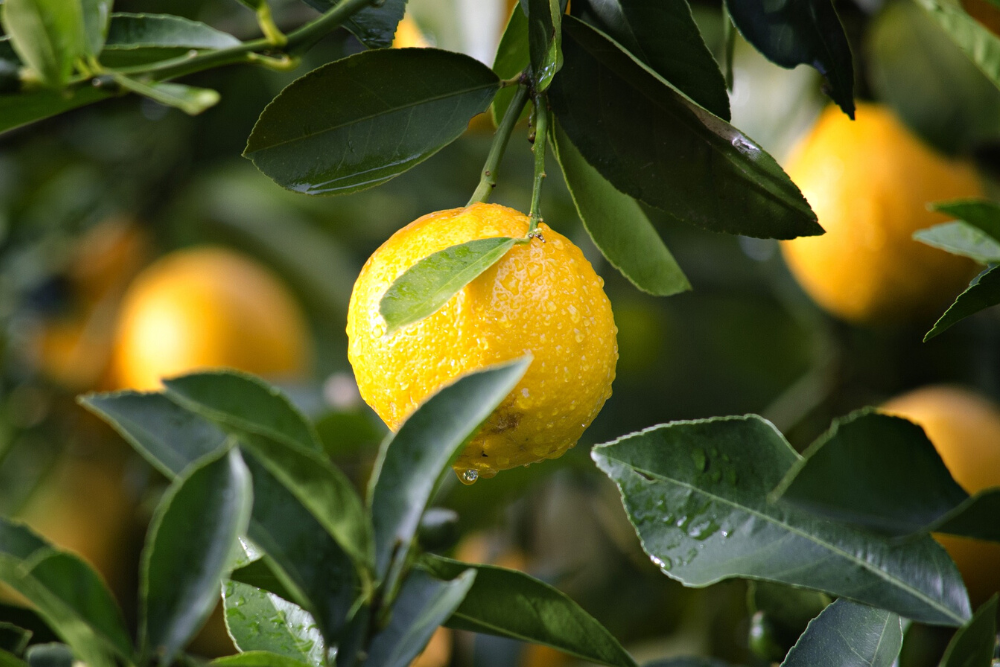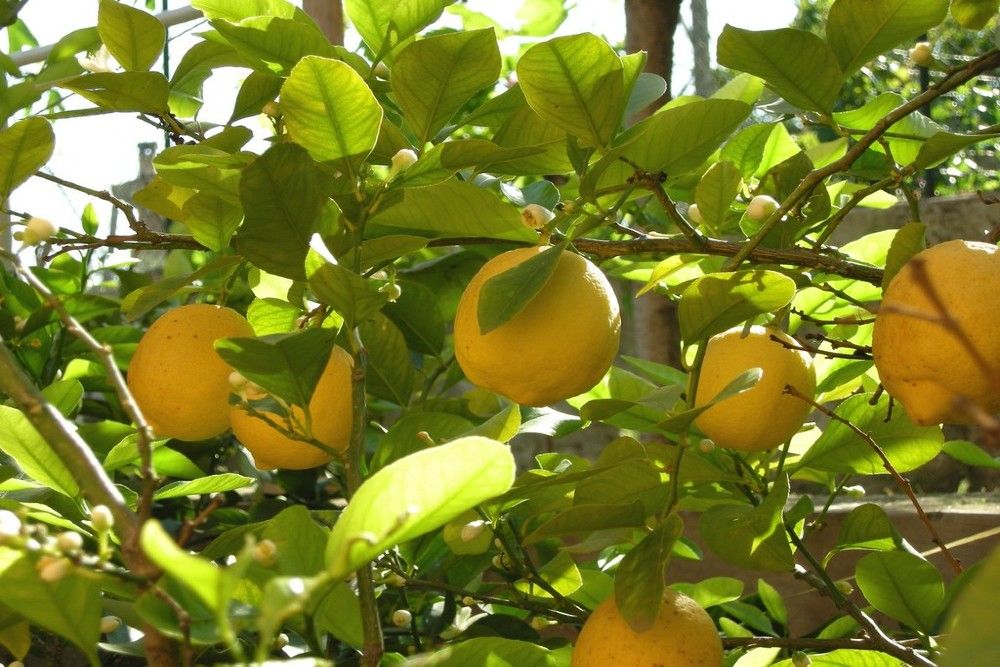Have you ever wanted to grow juicy, sweet lemons in your backyard? If so, using Epsom salt on your lemon tree will help you achieve a bountiful harvest. Epsom salt can help provide many necessary nutrients that trees need for optimal growth and health, ensuring larger fruit yields and healthier foliage!
Below you'll find the benefits of using Epsom salt on lemon trees and learn how to apply it correctly. Plus, you will find out why you should start using it in your citrus garden today!
Why You Should Use Epsom Salt on Your Lemon Tree
Image credits: Martina Unbehauen via Shutterstock
If your lemon tree isn't producing as much fruit as you'd like, or if it's not looking healthy, it may be because of a magnesium deficiency. Magnesium is an essential nutrient for healthy plant growth, and deficiencies are common in many parts of the United States, especially in naturally alkaline soils. Fortunately, there's a simple fix.
Use Epsom salt to provide your lemon tree with the nutrients it needs for optimal growth since it is a natural source of magnesium sulfate. To determine whether your lemon tree needs magnesium, do a soil test first. It will provide information on the levels of essential nutrients, including magnesium. If it's low, Epsom salt is an effective and inexpensive solution to help your fruit trees thrive.
For a flourishing citrus garden, acidic soil with a pH of 5.5 to 6.5 is ideal -- and Epsom salt provides just the right amount of magnesium sulfate for optimal growing conditions!
Symptoms of Magnesium Deficiency
Magnesium deficiency can be a major problem for citrus trees, as it affects their ability to photosynthesize sunlight efficiently and thus reduces the productivity of the tree.
The primary symptoms of magnesium deficiencies are yellowing of the foliage. It presents itself along the tips and edges of older leaves. If you suspect your lemon tree may have a magnesium deficiency, using Epsom salt will help restore your tree's health.
How to Use Epsom Salt on Your Lemon Tree
Image credits: Martina Unbehauen via Shutterstock
The first step is testing your soil. You can use a homemade tester or buy one from your local garden center.
Once you are sure the soil lacks crucial nutrients, you can take appropriate steps to complete them. Start by completely dissolving 1 to 4 ounces of Epsom salt for every cubic foot in water, stirring until all the granules are gone. This can be applied in two or three doses per season.
It will create a solution that you can pour over soil above the root area of your lemon tree. However, do not pour it directly on the roots. Make a mound around the root zone, about a foot in diameter, and pour the solution around the mound.
Alternatively, spray your lemon tree leaves with the Epsom salt solution, only once or twice per year.
Monitor for Changes
Image credit: Pexels via Pixabay
As with any gardening treatment, you'll want to monitor your lemon tree after application and observe how it responds. After a few months, you should see signs of improved magnesium content in its foliage and a healthier lemon tree overall!
If, however, your lemon tree continues to show signs of yellowing, or general unhealth, consider other factors. Such as watering frequency, disease, or temperature conditions.
Caveats to Using Epsom Salt for Your Lemon Tree
Image credits: Yellow.Cat via Creative Commons
While Epsom salt can help ease magnesium deficiency, you should not overuse it, as this can cause other nutrient imbalances in the soil. Additionally, use Epsom salt for treating deficiency-related issues and do not replace it with regular fertilizing for healthy growth.
Epsom salt and water solutions are often used to fertilize citrus trees, but use caution when applying these mixtures. Though spraying foliage with Epsom salt and water can be beneficial for a lemon tree, it can also cause damage to the leaves when used excessively.
To avoid this issue, dilute the mixture before spraying and never exceed the recommended concentrations. Furthermore, using a horticultural wetting agent helps dissolve the water solution more evenly over the leaves and can reduce potential leaf scorching.
Magnesium in Epsom salts seeps quickly from the soil. Frequent applications may be necessary to get the desired results. However, excessive magnesium leaching could end up polluting water tables or other environmentally sensitive areas.
Grab The Epsom Salt!
Epsom salt is a great way to provide your lemon tree with essential secondary nutrients and restore its health. Plus, since it's easy to use, you can get started right away! With Epsom salt and the right amount of care, you can enjoy delicious lemons from your backyard for years to come. Get some Epsom salt today, add it to your lemon tree's soil, and watch as it grows waxier and healthier in no time.
Help spread the word by sharing this article with friends who could benefit from this simple yet effective trick! And don't forget to comment below with your experience!

